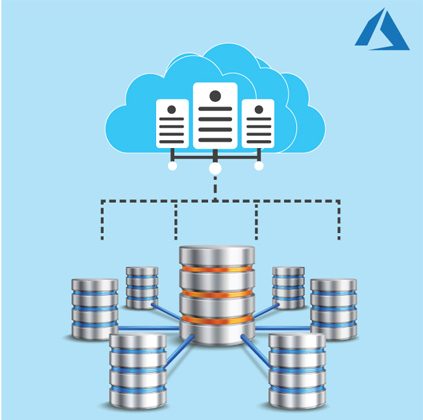Businesses are moving to the cloud, are you still running on SQL server database? Then, it’s high time to move to Azure SQL database. You can now migrate your SQL server databases without modifying your apps. Let’s look at this article on the 7 reasons which steers organizations to migrate to Azure SQL database.
- Cost Savings
Azure SQL database offers attractive plans for both big and small businesses. Azure allows you to pay as low as $4.99 per database per month with a maximum storage of 150 GB per database. You would have to pay only for your usage, and you can scale up or scale down your resources as required. This model eliminates your hardware cost and provides database portability features across on-premises and cloud with compatible virtualizations.
- Multi-level implementation
You can deploy the Azure SQL database in various modes to suit your specific requirements. If you are looking at a website and a database, then you can launch a SQL Azure instance to use by an Azure website. In case you require a dedicated VM now or sometime in the future, you can get that as well. You can even install a local instance of SQL Server in the VM instead of SQL Azure. This wide range of implementation options enables your organization to be more adaptable to the evolving technologies and manage costs in an effective manner.
- Less maintenance and minimal down time
Choosing Azure SQL database takes off the burden of physical administration of servers, data centers. You don’t have to focus on setting up SQL Server, allocating databases, and maintaining the physical upkeep. In some cases, the need for dedicated IT resources is eliminated or reduced, which in turn saves operations time and enhances business productivity.
- Easy migration
Move to Azure SQL database without altering your existing applications. You can use the existing tools, same SQL programming. Developers work on SQL Azure through SQL Server Management Studio or SQLCMD, both of which are user-friendly software applications.
In most cases the existing applications are portable with minimal changes. This is the biggest advantage because organizations need not invest in new resources, technology, etc. For existing SQL server apps this is an easy migration process with great benefits.
- Elasticity
Companies can increase the application instances as needed. This is achieved via sharding, a type of database partitioning which divides very large databases into smaller parts called data shards. You can change the number of nodes according to demand and leverage a federation infrastructure to scale without impacting other server functionalities. To make life easy, the SQL Azure Federation Data Migration Wizard can automate the sharding process.
- Access control
Azure SQL database provides Role-based Access Control (RBAC) and server-level firewall security to maintain data integrity. You can manage the access to resources in Azure, and set level-based permissions for users and applications. You can distribute the workloads among your team and allocate the necessary level of access to users.
- Security
Limiting the access to database based on firewall rules and authentication schemes ensures the data security. The firewall allows access to databases based on IP address, and proactive monitoring techniques like threat detection service alerts on SQL injection attacks and suspicious activities.
You can connect your SQL Data Warehouse to Azure SQL Database based on Azure Active Directory authentication. This mechanism manages the user identities and other Microsoft services in a centralized site, and avoids storing passwords through integrated Windows authentication and other modes of authentication.

